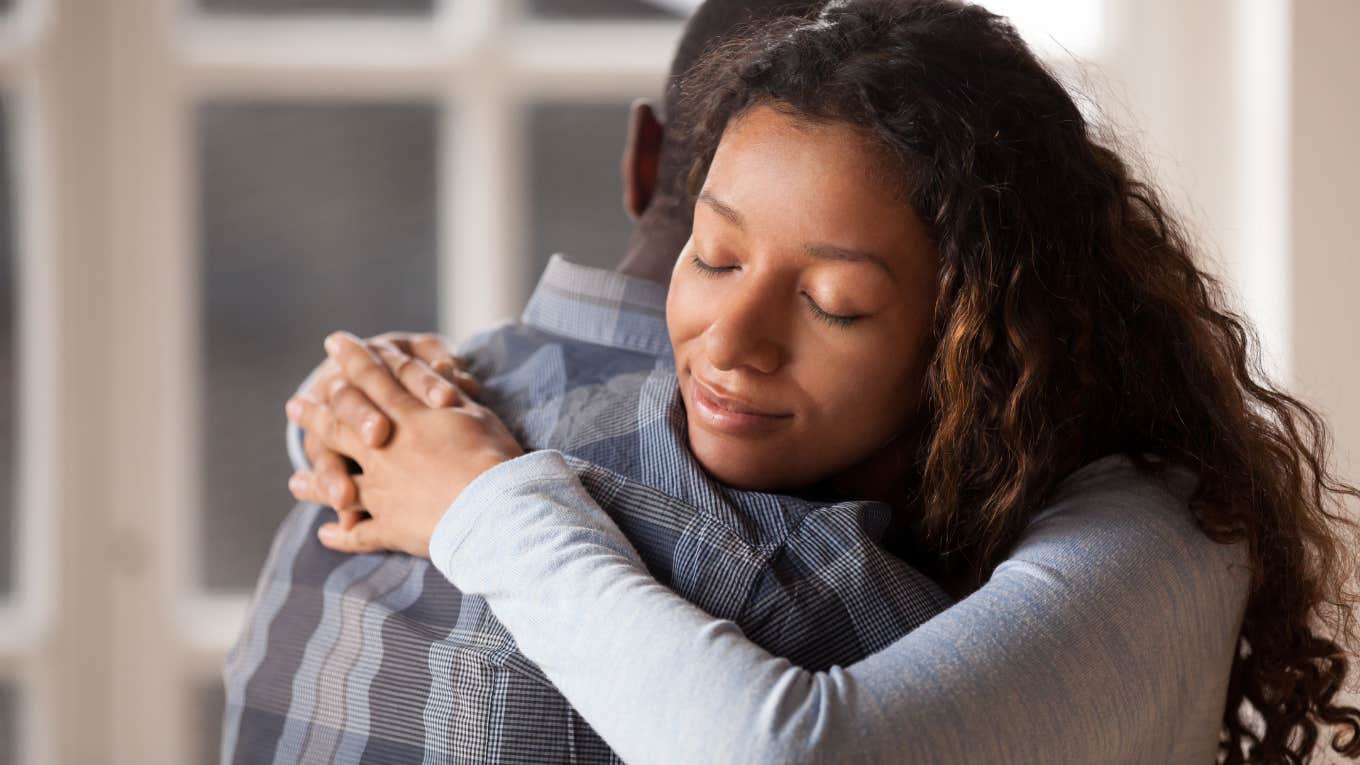Psychologist Explains Why Forgiveness Sometimes Does More Harm Than Good & You Don't Owe It To Anyone
Forgiving those who have wronged us doesn't have to be a step in healing our trauma.
 fizkes / Shutterstock
fizkes / Shutterstock Oftentimes we hear that having grace and forgiving those who've hurt us is important when trying to find closure, move on, and heal.
However, a psychologist named Dr. Ramani Durvasula, who specializes in guiding healing from narcissistic relationships, shared some honest advice about why people shouldn't get caught up in the semantics of forgiveness.
The psychologist explained why forgiveness sometimes does more harm than good.
"How do we forgive someone who's hurt us so badly as a narcissist?" Dr. Ramani was asked by Lewis Howes during an episode of his podcast "The School of Greatness."
Giving an honest answer, Dr. Ramani pointed out that we don't actually have to forgive, and it often doesn't serve any purpose in our journey of healing after being in a toxic situation with an individual who has brought us nothing but pain.
Dr. Ramani explained that we shouldn't feel an obligation to forgive someone who has "hijacked" our souls and made it impossible to find peace on this earth. "Maybe there is no forgiveness for that," she revealed.
"The pressure to forgive has led some people to feel guilty their whole lives [or] prematurely forgive," she told Howes. "There's a really interesting body of literature out there that suggests that if we forgive someone who reperpetrates it significantly harms the well-being of the forgiver."
She insisted that all of the research that claims forgiving someone for harming you will make you feel better, or take a weight off your chest, is wrong.
The reality is that sometimes the person you're forgiving will still be in your life as many people are unable to leave relationships that they formed with a narcissist completely.
"Some people continue to have contact with the family members. They continue to stay in the relationship. They may not have a choice, not everyone can leave. It's not how it works most of the time," she continued.
Dr. Ramani's insight speaks volumes to this pressure for people to forgive others, especially narcissists. We've been taught that by offering forgiveness, you are working toward repairing both the relationship with that person and yourself. However, there's a sense of letting someone back in when you offer forgiveness, and that's a decision individuals need to make for themselves.
In a similar vein, Shannon Thomas, a licensed clinical social worker, told Thrive Global that being an expert in spiritual abuse has given her a front seat to victims releasing their abusers too soon from accountability by forgiving them.
"When the topic of forgiveness arises, many emotions are triggered for survivors of abuse. This is especially true within a religious or spiritual setting. The traditional definition of forgiveness involves telling the abuser he or she is released from the responsibility for the damage they have caused," Thomas said. "This action is absolutely not helpful within an abusive environment. Toxic people must hold and address the responsibility for their actions."
Dr. Ramani admitted that she's had personal experiences with refusing to forgive narcissists.
Talking about her own experience, Dr. Ramani explained that she has multiple people in her life that she doesn't speak to anymore and is completely fine with not forgiving them.
"I don't forgive them. I will never forgive them," she said. "I will never forgive them because what they did, it changed my view of myself. I spent years crawling out from under that rubble. I still doubt myself. I still don't feel safe in the world. They took away my safety. How do you forgive that?"
Howes interjected that as long as she feels peace with herself then it shouldn't matter and Dr. Ramani agreed, insisting that she does feel peace and sleeps great at night. Two things can be true — you can heal from the wrongdoing that others have inflicted upon you and still have no desire to forgive them.
The thing that bothers Dr. Ramani, she confessed, is that the same people who've harmed her are probably harming others. They haven't learned their lesson, and they have refused to take accountability for their actions or even go down the path of healing themselves.
"I think that people who don't forgive definitely feel peace," she remarked. "I think the people who don't feel peace are the people who forgive and keep getting harmed. Healing from narcissistic abuse is individuating, becoming autonomous, and ultimately rising into your authentic self. And your authentic self may not forgive."
Dr. Ramani's candid observation hopefully helps individuals who are struggling with the idea of forgiving those who have wronged them. You don't need to offer forgiveness to anyone to feel better about yourself and all of the pain that you've endured at the hands of others.
The only thing you can do is learn to work through that trauma and come out on the other side of it.
Nia Tipton is a Chicago-based entertainment, news, and lifestyle writer whose work delves into modern-day issues and experiences.
